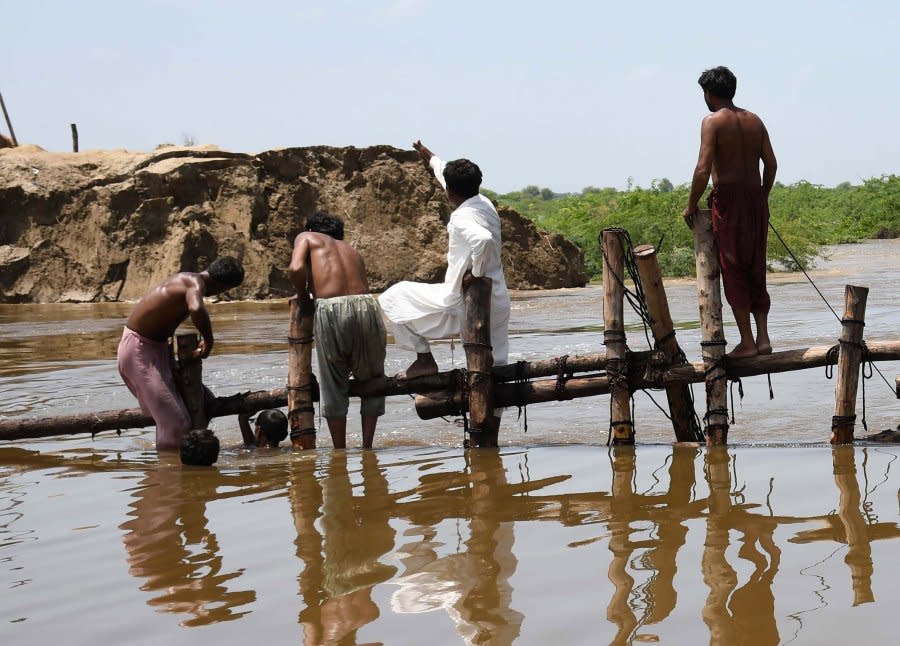UNICEF: Lack of humanitarian aid leaves Pakistan's children vulnerable after devastating floods

Aug. 25 (UPI) -- An estimated 4 million children in Pakistan remain desperate for humanitarian aid one year after deadly monsoon floods ravaged the country, according to a new report by UNICEF.
The analysis, released Friday outlines the nation's unreconciled disaster and comes as the Punjab government was dealing with major flooding events that have displaced thousands of residents in the past month alone.
"Vulnerable children living in flood-affected areas have endured a horrific year," said Abdullah Fadil, UNICEF's representative in Pakistan. "They lost their loved ones, their homes and schools. As the monsoon rains return, the fear of another climate disaster looms large. Recovery efforts continue, but many remain unreached, and the children of Pakistan risk being forgotten."
At least 87 children have died in flooding this year across the country as recovery and rehabilitation efforts remain underfunded, the report said.
More than 1.5 million children continue to experience hunger in flood-ravaged districts, while UNICEF called for $173.5 million in international support to help the country bounce back after the global pandemic.
Clean drinking water has become one of the primary concerns amid the disaster as wells and infrastructure remained damaged after a year, and as cholera was spreading across the country amid harsh conditions.
About 8 million people, half of whom were children, continued to live in flood-affected areas without safe drinking water, the report said.
UNICEF was working with Pakistan's government and other partners to install community water pumps and filtration services in an effort to create a sustainable water supply throughout the region.
The devastating rainfall during summer 2022 left more than 1,800 dead and displaced as many as 33 million people, many of whose homes were damaged or destroyed in one of the worst natural calamities in the country's history.
UNICEF was one of the first response teams to arrive in Pakistan in 2022 to deliver emergency supplies as large portions of the country were underwater, with hundreds of roads and bridges damaged and more than 2 million homes washed away.
At the time, more than half of Pakistan's districts, including as many as 9 million children, needed humanitarian support as healthcare, nutrition, schooling and clean water vanished from daily life.
During the flooding, UNICEF workers handed out water, sanitation and hygiene kits, blankets, medicines and food and also installed portable bathrooms and clean water stations at refugee camps nationwide as families sought higher ground.
Temporary schools were set up under tents, and months later, as winter approached, UNICEF was back on the ground in the region to distribute thermal blankets, and donated jackets, hats, and socks and shoes.
In July, the International Monetary Fund approved a $3 billion bailout to help Pakistan climb back economically after last year's floods.
